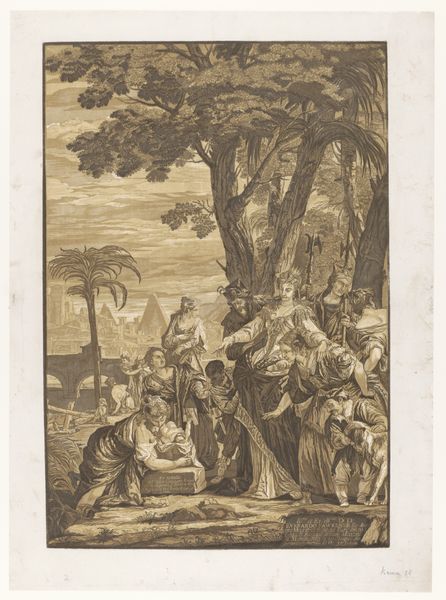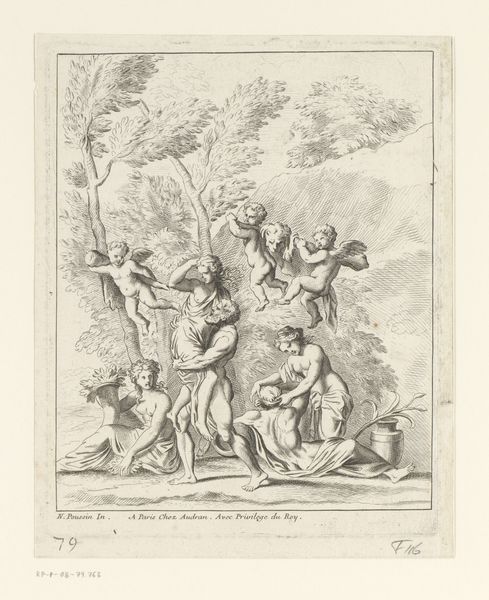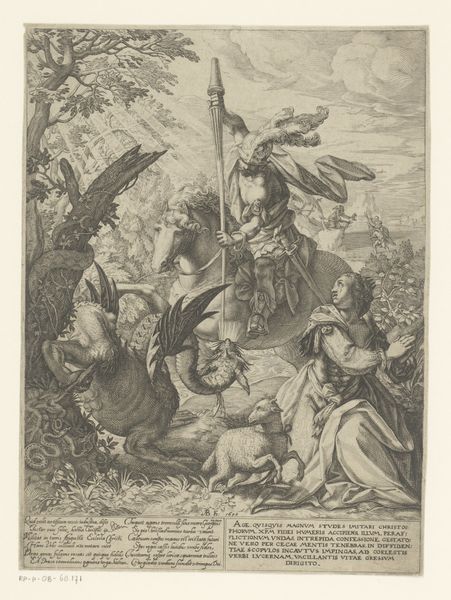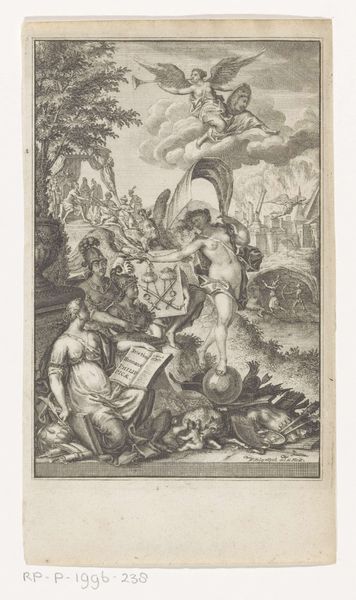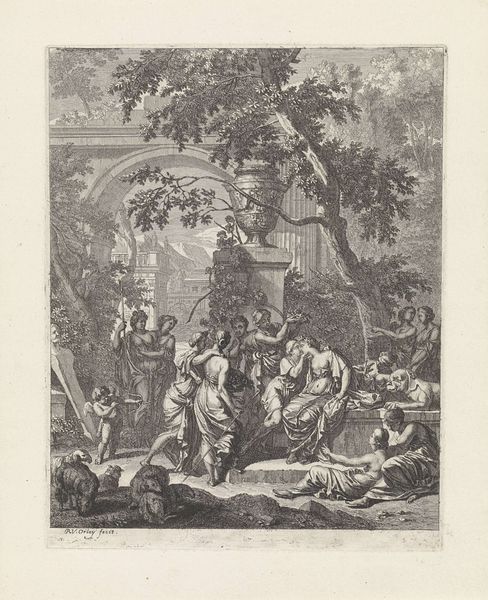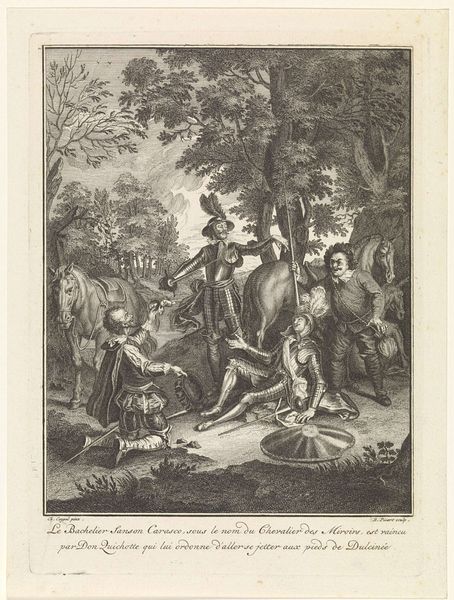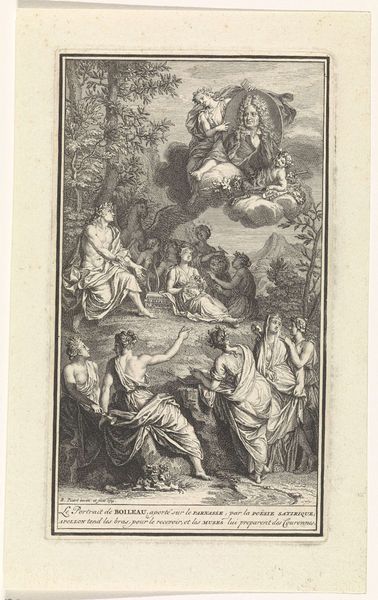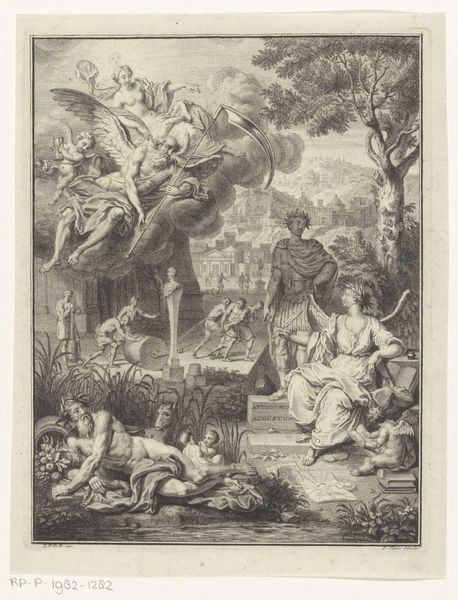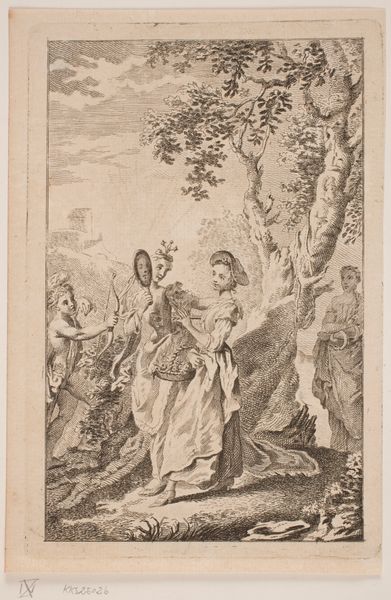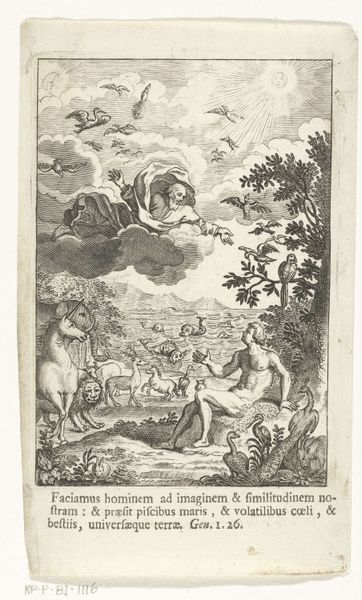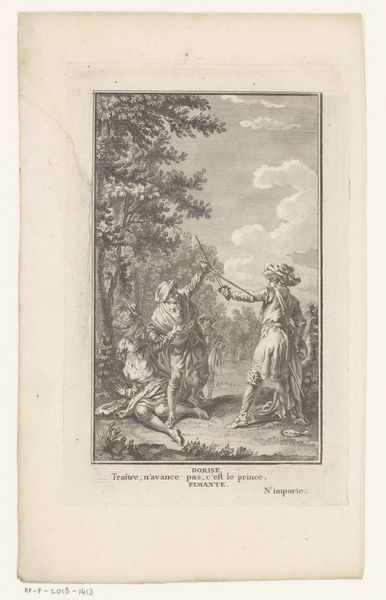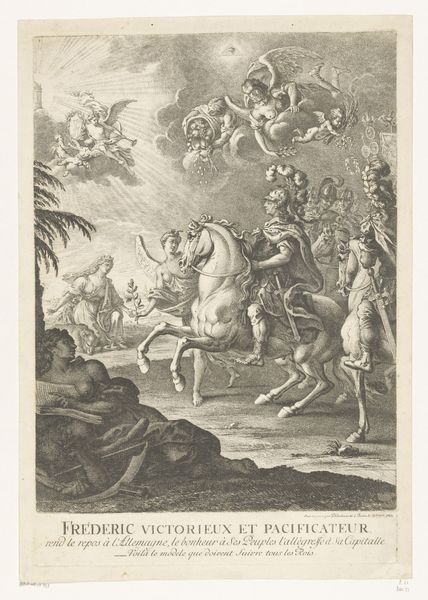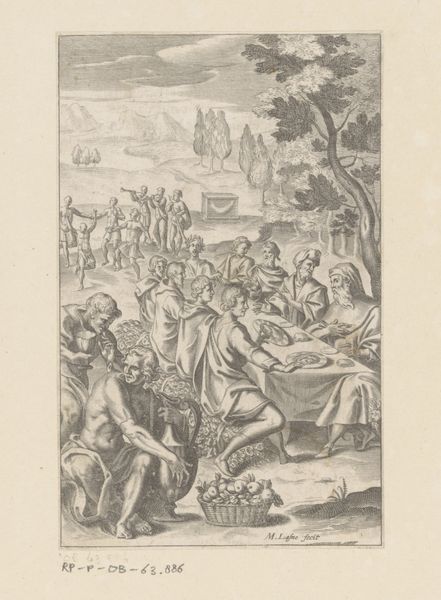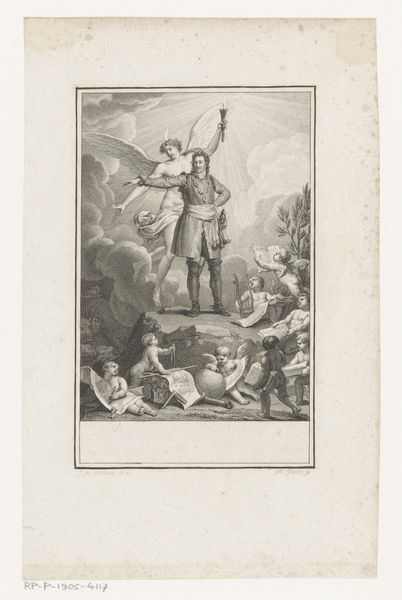
Allegorische voorstelling met windhandelaar, Reden en Voorzichtigheid 1720
0:00
0:00
jacobusschijnvoet
Rijksmuseum
print, engraving
#
allegory
#
baroque
# print
#
old engraving style
#
figuration
#
history-painting
#
engraving
Dimensions: height 158 mm, width 102 mm
Copyright: Rijks Museum: Open Domain
Curator: Look at the swirling intensity of Jacobus Schijnvoet's 1720 engraving, "Allegorische voorstelling met windhandelaar, Reden en Voorzichtigheid." There is such a powerful use of figuration to achieve the work’s layered symbolic value. Editor: My first impression is of a chaotic assembly. The crosshatching in the engraving gives it an almost frenetic energy, particularly within that agitated group at the rear, struggling. It makes one wonder about the social implications behind such scenes of labor. Curator: Precisely. It's an allegory deeply rooted in the political and social anxieties of the time, focusing on the disastrous consequences of speculative trading or, as it translates from the Dutch title, "wind trade." The figures represent Reason and Prudence trying to quell the chaos caused by reckless investors. Editor: So, the choice of engraving is crucial here, yes? This reproduction technique allowed for the mass dissemination of a cautionary tale. We must also consider the accessibility of prints in a market-driven economy. What was the cost to produce such work, and who ultimately purchased it? Curator: Indeed, and considering the era, the intended audience likely comprised educated merchants and members of the ruling class. They were literate, informed, and active investors. The work, functioning as both art and moral lesson, sought to sway them from irrational investment behaviors that plagued the economy. The gendered allegory of Reason aloft in the heavens also plays into period narratives, associating feminine figures with morality and restraint. Editor: Absolutely. Notice how the lines converge to emphasize the frenzy among the desperate people trying to get ahead by clutching their money bags while others, blindfolded, push on as though nothing is wrong. There's certainly an appeal to both aesthetic tastes as well as to the wallets of consumers, the wealthy. A question worth asking is, would its political undertones be visible to those who consumed this? Curator: The work is powerful for how it engages moral philosophy by using widely understood visual codes to comment on the nature of political speculation. As a piece made for people in a position of financial power, the work underscores ideas of rational choice with considerations around gendered ideas of prudence and foresight. Editor: So ultimately the success of Schijnvoet's engraving lies not just in its allegorical themes but also in its accessibility, its place in society as well as market economies. That it allows viewers, even centuries later, to reconsider both moral virtue as well as power dynamics. Curator: That's wonderfully put; and now as our time concludes, consider Schijnvoet's engagement with political power in an unstable economy in order to reconsider ideas of governance that shape society, even now.
Comments
No comments
Be the first to comment and join the conversation on the ultimate creative platform.
